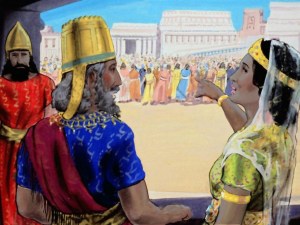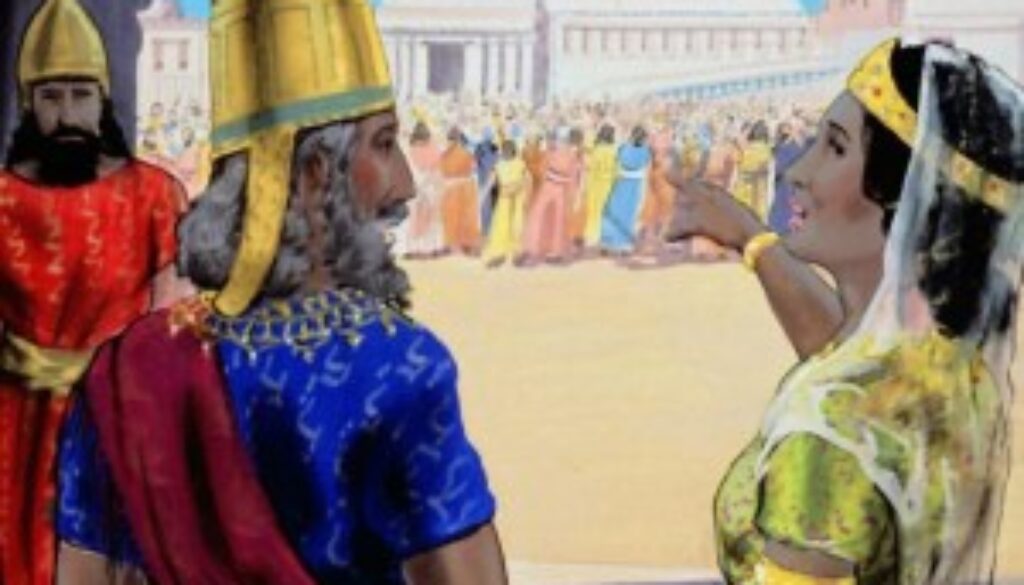Ester 10:1-3 Wrap Up

We have reached the end of Ester’s story. It concludes with a wrap up of Mordecai’s rise in power under King Ahasuerus of Persia.
The king’s acts are mentioned in this wrap up too but only the fact that he “imposed tax on the land and on the coastlands of the sea” (verse 1b). Not something that a great leader wants as a featured line in his biography. The rest of his acts are “written in the Book of the Chronicles of the kings of Media and Persia” (verse 2b). We don’t have those books in our bible so we have to rely on other history books to help us out.
Our text focuses on a specific focus of the king; that of promoting Mordecai the Jew. In reading Mordecai’s final traits I see that they are the traits he employed throughout the story. “For he sought the welfare of his people and spoke peace to all his people” (verse 3b).
Mordecai spoke peace to Ester as he released her into the hands of the king’s eunuchs as part of the king’s haram. He spoke wisdom to her daily while she was in the haram; instructing her not to reveal her heritage.
When Ester became queen Mordecai continued to watch over her. The king could, and probably did, take excellent care of Ester but Mordecai needed to know himself that she was safe. He came daily to the king’s gate to gather information about her and to pass her messages. All the king’s servants knew there was a special relationship between the two but we don’t know if they figured out they were related. Mordecai kept that information close to his heart to protect Ester.
Haman’s attitude towards Mordecai and the Jews forced Mordecai to call on Ester for help. ALL her life Mordecai had protected her, now she needed to protect him and the rest of the Jews. Mordecai didn’t ask this lightly of Ester. He came to her as a last resort to save the Jews.
After Ester shared her story with the king and Mordecai was called before him, Mordecai continued to seek the good of his people only. While writing the edict he did NOT give his people so much power that the king felt threatened by them. He gave them the authority to protect themselves against ALL their enemies. To bear arms as a means of self-defense. Mordecai sought to make the Jews a friend to the king.
Mordecai was a good Jew, a friend to the king, and an advocate for his people. We know he didn’t bow to Haman but did he bow to other gods while in Persia? Probably not. I wonder if his refusal to bow to Haman had to do with religious reasons or national historical issues between the two peoples.
Mordecai’s story reminds me of the parable Jesus told about the talents. He was faithful in the little things, so he was given more responsibility. That is the model we need to take from his story and follow ourselves. Whatever He gives you to do, do it with all your heart. When you are faithful in the little things, He will raise you up to the bigger ones.
Father God, thank You for trusting me with so many little things You have let me do over the years. I pray I have made You proud over the years. Thank You for letting me have this opportunity to share Your word. Again, I pray I am making You proud and doing Your will. Keep me walking in Your ways. I look forward to whatever You have in front of me. I have NO expectation of becoming ‘second to the king’ but I’ll take what You give me and be honored to be of service. May I make You proud then too.



